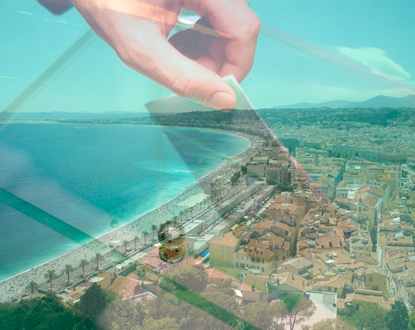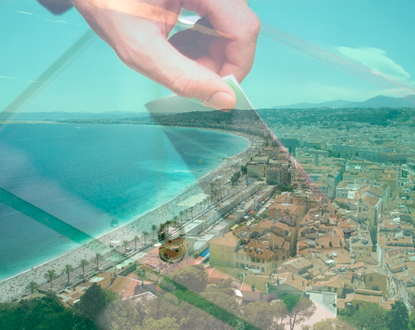Frédéric Ganneval (Artenice) reflects on the municipal elections in Nice in anticipation of the second round next Sunday, which will designate the new Mayor of Nice and, consequently, the new President of the Métropole Nice Côte d’Azur.
 What could happen in the second round?
What could happen in the second round?
National and Nice turnout rate
On a national level, since 1983, the second round generally mobilizes more voters than the first round. Furthermore, the increase in the number of three-way (more than a hundred in municipalities with over 30,000 inhabitants compared to 62 in 2008), four-way (more than 70 compared to 14 in 2008), and even five-way races (over 20 compared to 1 in 2008) is expected to cause a relatively significant, but variable, surge in participation according to municipalities, both to support the defended candidate or to block other candidates viewed as “dangerous” or incompetent.
Conversely, in Nice, the number of voters, even if expected to increase in the second round, is not anticipated to rise substantially.
In 2008, it increased by 2 points when Christian Estrosi was credited with only 35.8% in the first round (compared to 44.98% in 2014). It is unlikely that the turnout will be higher in the second round as the election seems, once again, already won by Christian Estrosi. The only “rebound” might be observed from abstainers who do not appreciate the presence of the FN in second place in this election.
The FN phenomenon in municipal elections in France and in Nice
For a long time, the FN attracted protest votes without being confirmed in a second round. Given the rejection of the traditional political class as a whole, it will be interesting in this second round to measure to what extent voters are ready to entrust the keys of their city or village to the National Front, and, conversely, how many will change their vote for a less controversial party, even though the FN has significantly polished its image to appear more politically correct since Marine Le Pen succeeded her father.
It’s noteworthy that the systematic underestimation of the FN by pollsters partly stems from the fact that this first-round electorate does not yet fully take ownership of this vote. It remains largely a protest vote and not a militant one. Will things change?
Reminder: The last four-way race in Nice
In Nice, the last four-way race dates back to 1995. Jacques Peyrat switched his FN label (1989 election) to Independent Right. He went into the second round with Jean Paul Barety (RPR), Paul Cuturello (Rally of the Left), and Jean Pierre Gost (FN).
Abstention in the first round was 46.17% (45.8% in 2014), Jacques Peyrat (33.99%) had less than an 8-point lead over the RPR candidate, a 14-point lead over the Union of the Left candidate, and a 21-point lead over the FN.
The score being relatively close, in the second round, voters turned out more, and abstention dropped by nearly 10 points. Peyrat won with 42.3% of the votes cast.
Today the configuration is different from that of 1995, the economic context continues to deteriorate, and political distrust is stronger than ever.
With a broad political offering in the second round, the most “probable” scenario
Christian Estrosi
Christian Estrosi obtained a crushing score in the first round. With nearly a 30-point lead over the FN and the PS, he will probably be handicapped by this significant score. With a weak electoral reserve, he is likely to struggle to significantly gain more votes and may even lose some, potentially to Olivier Bettati, a candidate with a right-leaning sensitivity but “new” on the local political scene, who can embody “political correctness”.
The question then arises as to how the votes of Michel Cotta (0.53%), Robert Injey (5.38%), Philippe Vardon (4.44%), and Jacques Peyrat (3.69%) will transfer.
Marie-Christine Arnautu
The FN loses part of its protest vote to Olivier Bettati or, to a lesser extent, to Patrick Allemand but benefits from the support of the identitarian block and part of Jacques Peyrat’s voters. However, it is unlikely that Ms. Arnautu will benefit from any first-round abstainers heading to the polls in the second round. Thus, probably maintaining a relatively stable score.
Patrick Allemand
The PS benefits from the vote transfer from the Left Front and some PS-inclined abstainers who are disappointed by the current government but do not identify with a right-leaning candidate. An increase of 5 or 6 points is possible.
Olivier Bettati
Olivier Bettati could be the surprise of this second round. With his image as a “new and clean” candidate, he might also benefit from part of the FN protest vote, some Independent Right votes (Cotta and Peyrat), as well as some voter turnout from left and right disappointed abstainers not wanting to see the FN capture too many second-round votes. A gain of 5 points… or even more?


